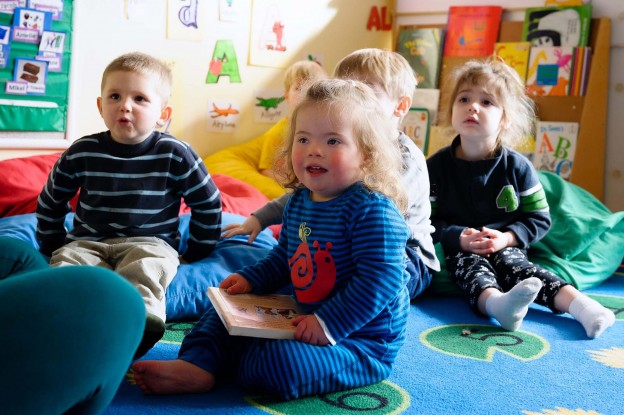“Days of the Week”
Informant information:
Lauren Grant is a 20 year old woman from Andover Massachusetts. She attends school at Quinnipiac University in an occupational therapy program. She has worked at the Recreational Education Center, an after school and summer care program for children with special needs, for the past four years. She has sent some examples of songs that the teachers use to engage with the students during “circle time”.
Type of lore: Verbal
Language: English
Country of Origin: United States of America
Social / Cultural Context:
At the Recreational Education Center in Peabody, Massachusetts, an after-school and summer care program for children with special needs, the following songs are sung by teachers of children with special needs in order to engage with the students. The students sing these songs along with the teachers. They are sung during “circle time”, which is an activity in which the the entire day center joins together, and all of the kids and teachers do an activity together instead of working one-on-one. It is a period for learning and socializing.
Transcript:
Days of the week *clap clap*
Days of the week *clap clap*
Days of the week, days of the week, days of the week *clap clap*
There’s Sunday and there’s Monday,
There’s Tuesday and there’s Wednesday,
There’s Thursday and there’s Friday,
And then there’s Saturday!
Days of the week *clap clap*
Days of the week *clap clap*
Days of the week, days of the week, days of the week *clap clap*
Informant’s comments:
This song is sung to the tune of the “Addams Family” theme song.
Collector’s comments:
We categorized this piece of folklore under verbal lore because it is sung. This song is authorless, it also contains repetition and rhyme for easy memorization. This song is specific to this center for children with special needs. Such a simple concept as the names and sequences of the days of the week can be difficult for these children to grasp, which is why the song was created. This song especially has clapping in it – this invokes interaction from the children and helps develop a communication channel between them and their teachers.
Tags/Keywords: Song, Music, Special needs



